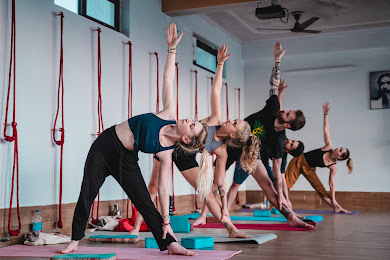 |
| Source: www.pexels.com |
By Sam Piha
In Part 1 & 2 of Youth Mental Health: What Can We Do in Afterschool, we explored which afterschool superpowers can be applied to address the youth mental health crisis. Below we offer thoughts on how afterschool programs can promote the mental health of adult staff. We also offer additional resources on mental health. (Note: learning loss indicated by lower reading and math scores should not be the focus of afterschool.)
Don’t Forget to Actively Promote the Mental Health of Afterschool Workers
Serving as a youth worker can be very stressful, even before the pandemic. It can be challenging, especially if staff are struggling with their own stress. It is important for afterschool organizations, leaders and individual youth workers to take actions to support the mental health of staff.
“Self-care is giving the world the best of you instead of what’s left of you.” - Katie Reed, Writer, speaker, and mental health advocate
Tips for Afterschool Provider Organizations:
- Ensure access to free mental health services for staff
- Allow program staff to take mental health days, with pay.
- Lead activities that express appreciation for program staff as important “first responders.”
- Even though many programs suffer from staff shortages, try to avoid over scheduling your staff.
- Compensate staff when they work overtime.
Tips for Afterschool Program Leaders:
- Make statements that normalize the stress that comes with youth work and acknowledge the contributions of staff.
- Conduct frequent team building exercises.
- Promote messaging to staff to set aside time for self-care and seek mental health support when needed.
- Institute check-in circles at staff meetings, which allow people to share their experiences.
- Offer workshops on self-care practices. Incorporate self-care practices into meetings and encouraging staff to practice mindfulness, yoga and stretching can help build coping skills.
- Remind staff, “We can’t solve the youth mental health crisis alone. It takes the entire village.”
Self-Care Tips for Individual Afterschool Workers
“Self-care is the action and effort of taking care of one’s physical, mental and emotional well-being. It is not about being selfish, but rather about self-preservation. It also isn’t about investing in products; it’s about investing in one’s self.” – National Afterschool Association, 104 Self-Care Strategies for Afterschool Professionals
- Set aside time for self-care and seek support when needed.
- Take a mental health day as a paid sick day when needed.
- Practice mindfulness, yoga and stretching.
“Self-care is a personal practice that should be exercised daily and for the long term. Beginning a self-care journey may feel daunting and overwhelming with all the information available on the topic. The following 104 strategies are tips to help get you started and/or refine your self-care practices. While there plenty of tips included in this guide, identify those which you most resonate with and will help you on your self-care journey.” - National Afterschool Association, 104 Self-Care Strategies for Afterschool Professionals
MORE INFORMATION ON AFTERSCHOOL AND YOUTH MENTAL HEALTH
There is an abundance of information on COVID and youth mental health. In addition to the links cited in our previous blogs on mental health, below are some recommended resources on the topics discussed.
- Shaping Minds: The Mental Health Benefits of After-School Programs
- 5 Things We Learned About Student Mental Health in 2022
- Preventing And Tackling Bullying
- Standing on the Edge: How School Leaders Apply Restorative Practices in Response to Cyberbullying and Online Aggression
- Supporting and Promoting Mental Health in Out-of-School Time
- Sports Coaches Want More Training on How to Address Young Athletes’ Mental Health
- 104 Self-Care Strategies For Afterschool Professionals
- Self-Care and Wellness for Child Care Professionals
- 9 Steps to Taking Care of Yourself
- K-12 Mental Health & Psychopathology Toolkit
- Spotlight on Student Mental Health
- 2022 Mental Health By the Numbers
- SUCCESS STORY: A District Fought Student Anxiety — and Won!
- 4 ways to ensure your school’s mental health initiatives support transgender students
- 5 ways to help students with ADHD thrive in the classroom
- Addressing the Rise in Youth Suicide
- How School Mental Health Professionals can Banish Burnout
- Teen Mental Health: A Vulnerable Stage of Life
Speaker’s Forums/ Webinars
Temescal Associates and The How Kids Learn Foundation have sponsored 4 recent webinars on the topic of kindness and mental health. We invite you to view these presentations by clicking on the image below.






No comments:
Post a Comment